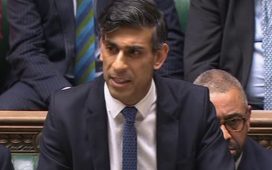Plans to hand greater control of Covid-19 contact tracing to town halls will come too late to affect the second wave of the virus in some of the worst affected parts of England, public health experts have warned.
Officials in Yorkshire and Newcastle said plans floated by ministers at the weekend to boost local resources to track outbreaks might only help stem a later third wave.
The communities secretary, Robert Jenrick, on Sunday appeared to confirm reports the government will empower councils in England to employ more people to knock on doors to get contacts of Covid-infected people to self-isolate and give them greater control over testing.
“We want to work very closely with the local mayors and with the councils,” he told Sky News. “We are going to be ensuring that the national testing infrastructure … works in harmony with what’s happening locally. Because local councils and local communities are very good at contact tracing.”
The move is seen as an admission that the national NHS test and trace system has been failing. It follows months of lobbying by local directors of public health, mayors and council leaders for more power to track the virus locally. Local leaders caution, however, that the additional responsibility, and potential for blame, must be backed by resources.
Boris Johnson is expected to address local roles in an announcement on Monday about lockdown restrictions. The Local Government Association says local contact tracing systems have a 97% success rate at finding close contacts and advising them to self-isolate. The latest figure for reaching contacts within 24 hours of them being identified by NHS test and trace is 67%.
However, Eugene Milne, the director of public health in Newcastle-upon-Tyne – where there were 487 infections per 100,000 people last week, one of the highest levels in the UK – said additional local test and trace will not, of itself, suppress the current second wave, but preparations now would ensure a working system for once the wave has passed.
Another public health director, in Yorkshire, added: “It may be too late in the university towns in the north.”
Newcastle wants to create about 15 local contact tracing teams, using the existing national call centres only as a backup. Each team would be able to track down at least eight case chains a day, with details logged on a single computer system. It also wants money to hire behavioural scientists to guide its effectiveness and fund regional advertising campaigns.
More than 90 councils have already launched or are close to launching their own locally supported contact tracing arrangements, according to the LGA. These use call centres, redeployed environmental health and sexual health officials and door knocking to trace contacts. Birmingham city council has been using members of the military to offer tests door-to-door in infection hotspots.
Andy Street, the Conservative mayor of the West Midlands, said: “We’ve always known that there was a need for a local element of test and trace, as a centralised system does not have local expertise and is not able to cut through the harder to reach communities. In the West Midlands our local councils have been leading the way on this for months.”
Privately, some local officials have voiced fury at the weaknesses of the privately run national system. One director of public health in north-west England said it was “still so bad and poor quality in the data being provided”.
“We asked for [local powers] since day one,” they said. “Shame it’s taken so long for them to realise we were right.”
Andy Burnham, the Labour mayor of Greater Manchester, said the government had finally acknowledged it would be better for test and trace to be handled locally.
“They now need to back this with serious resources,” he said. “Council leaders in many regions have been relying on volunteers but this cannot continue. It can’t be done on the cheap – councils have to be given more resources to employ expanded, trained teams.”
One local contact-tracing system in Hertfordshire has already cost £1m. Access to accurate data from the national system remains a key problem. The national contact tracing database, CTAS, remains unavailable to some local district councils, said one senior director of public health who described the system as “creaking”.
“Too many contacts are coming through without phone numbers and about a third don’t have occupations [which hinders efforts to quell workplace outbreaks],” he said.
Downing Street and the Department of Health and Social Care said they did not wish to comment ahead of Monday’s statement by the prime minister.













